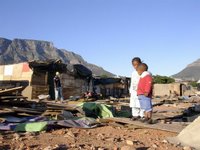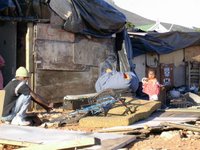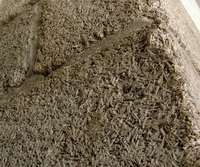A workshop which went up in flames in Johannesburg on Wednesday, killing 12 people, was not suitable for accommodation, now legal experts have called on the Johannesburg metro council to provide safe and viable housing alternatives for poor migrant workers who live in the city after a fire at an abandoned workshop in the CBD that left 12 people dead.
Shaun O'Shea, marketing manager for Region 8 of the inner city, said the two-storey workshop had only been converted into a living area in the past few weeks. He said if the building had been inspected, it would have been earmarked for closure.
Another 33 of about 150 people who lived in the unused workshop were injured in the fire.
"If anything this tragic event demonstrates the city's dismal failure to deal productively with unsafe living conditions. The city has to start providing real alternatives," said Wilson.
Gauteng housing MEC Nomvula Mokonyane expressed shock at the death of the people in the inferno. Full Story
Shaun O'Shea, marketing manager for Region 8 of the inner city, said the two-storey workshop had only been converted into a living area in the past few weeks. He said if the building had been inspected, it would have been earmarked for closure.
Another 33 of about 150 people who lived in the unused workshop were injured in the fire.
"If anything this tragic event demonstrates the city's dismal failure to deal productively with unsafe living conditions. The city has to start providing real alternatives," said Wilson.
Gauteng housing MEC Nomvula Mokonyane expressed shock at the death of the people in the inferno. Full Story
The Special Advisor to Housing Minister Lindiwe Sisulu regards these deaths mearly as statistics and does not see them in relation to the problem of housing, and or the human habitat to which he is the special advisor.

















